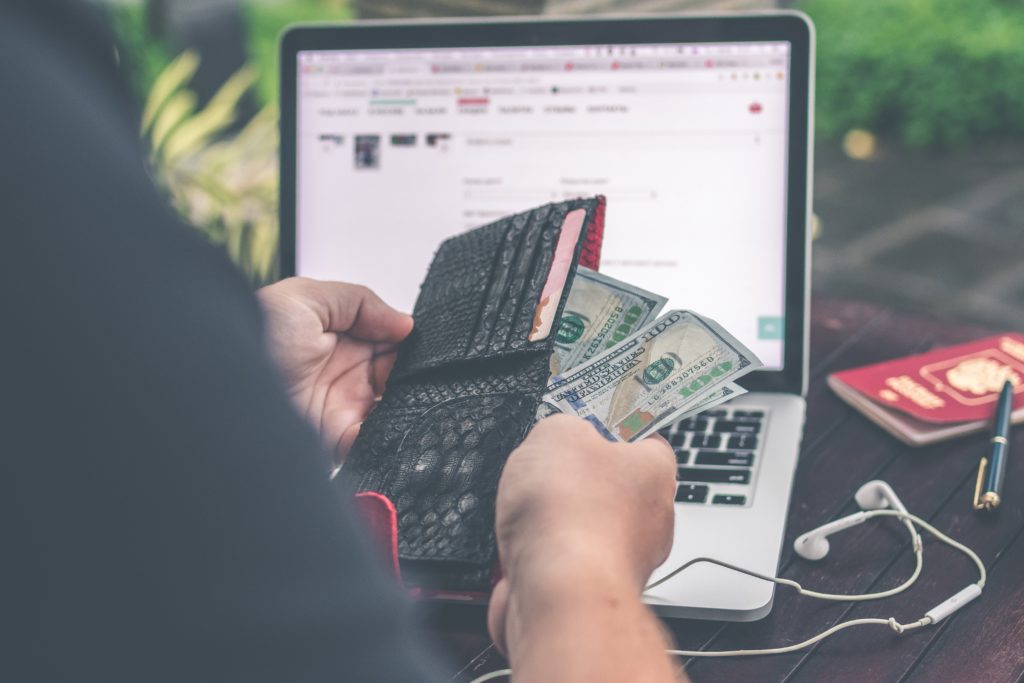
Over the past couple of the days several posts are going around about Instagrammers getting scammed with an offer to do a photo shoot in Asia, kicking off in Jakarta where the scam comes to a head in every instance.
You can read a couple of those experiences here, here, and further summarized here.
Below, I wanted to add a few more things that I have learned along the way that has protected me from really unfortunate situations, noting that even what isn’t traditionally considered a scam, but is not a situation favorable to you, can feel like a huge loss if you don’t protect and educate yourself.

The danger of being hungry for work
I want to start by strongly stating that I don’t think that any of these situations is the fault of the victim or victims caught up in them.
I do know that one of the things that scammers heavily rely on in order for their scams to work is hunger and as freelancers, we are all susceptible to this. Whether it is actual hunger due to low funds, or a long stretch of no work, or whether it is the hunger for that big break that could potentially propel your career.
I have agreed to what I know have been crappy deals out of the sheer hunger of wanting to be affiliated with a large brand or be a part of what I convinced myself would be a great opportunity. It very rarely yield successful results. Taken risks is a part of business, but the motivation should also matter. And hunger is rarely a good one.
This why patience is so very important and shouldn’t be viewed as a luxury, even in a competitive, over saturated, freelancing world.
When what seems like a wonderful opportunity comes your way, make sure to take a deep breath, step back from it, and give it some time to process. A red flag is when someone you are unfamiliar with starts pressuring you with a tight deadline, and a need for an immediate reply. Even if the ask is legit, I always worry that the lack of organization and last-minute request is a sign to how the rest of the project will go. It is impossible to guard yourself, and your business from mishaps when not allowed time to at least consult with someone or do some research.
Talk to your community of freelancers
There is this perception that we can’t openly talk about issues that impact our business and things we have on our plate, whether they be projects, issues with clients, or even negotiation questions we may have. This is why our industry is so susceptible to not only scammers, but to inconsistent rates for services and abusive practices.

We have to learn to talk to each other. We have to be willing to share our knowledge, and do it freely. I agree that we should get paid for teaching others, our intellectual property has worth, and I agree that having people bombard you with “I want to pick your brain” messages is extremely inconsiderate, rude, and annoying, but not every opportunity is one to make money from, and we have to balance what we can share for the betterment of our industry. Don’t make the only opportunity people have to learn from you come from an overpriced retreat or an annual blogger conference. Learn to give back some. Doing so helps add fluidity, accountability, and consistency to our industry, and provides guidance, education, and confidence to the creatives in our space.
Sure, we are often competing with each other for work, and no one is expected to show their business strategies, we don’t even have to disclose client names, but we also don’t have to be so protective that we can’t share ideas about the negotiating process and fair, realistic, and honest fee structures, or contractual standards that we could ALL benefit in learning from. And if we do encounter a crappy client who doesn’t pay, or treats us like garbage, or tries to scam us, we need to be open about that too, and we need to learn to vet our potential clients just as aggressively as the BEST clients I have ever worked with have vetted me.
Because it doesn’t matter whether you are a celebrity Instagrammer or a newbie, we can’t protect and improve our industry as a whole – and in the process, the way we do business, if we are overly protective of the skills and tools needed to get us to a better place.
Don’t make the only opportunity people have to learn from you come from an overpriced retreat or an annual blogger conference.
There is no such thing as too many questions
In both these situations linked above, there were so many opportunities to ask more questions. The scammer at one point stated that they were referred to the Instagrammer by someone at a high-profile travel publication. Patience would have insisted on asking who, and then would have persuaded them to call said publication to verify that in fact there was someone by that name, and more importantly, that they have been referred.
Traditionally, legitimate referrals are never vague. “Someone” from so and so. Or a “contact” at this and that. People who refer you don’t do so expecting anonymity. Often times the person referring you will give you a head’s up that they will be doing so, and even when they don’t, you are familiar enough with the person referring you that it is easy to contact them and either thank them for the referral (which I always do) or ask them if they in fact know the person, and ask them for more background information on the company or individual that they referred you to.
Up-fronting costs is a hard NO
I have only been asked 4 times in my 10 years of blogging to upfront the costs for a travel assignment, and have only done so twice because I had a long, extensive working relationship with both companies whom I agreed to do this with. Traditional, lucrative newspapers and magazines might sometimes agree to reimburse their writers for expenses on assignments or stories they have agreed to pick up, and even then those deals leave the writer with less money in their pocket than what they put out because at the end of the day, the editor will determine what they consider is an acceptable reimbursement rate, if any. This should be discussed, disclosed, and contractually agreed upon pre-assignment. All costs should be deducted from your charged fee, because to be honest it is a loss for you until you actually get reimbursed which depending on some companies can be anything crazy like 30, 60, and even 90 days – if not more. Up-fronting costs is a really crappy arrangement, and I rarely take on assignments where the client can’t take on my expenses, like flight, hotel, permits, tour costs, and food from the get. It’s just an unsustainable business strategy, and those who can afford to do this on a regular basis are often in a better financial footing than others – which is why media is such a privileged industry, lacking in socio-economic and racial diversity, but I digress.

Be careful with banking information
As crappy as that arrangement is, nothing is more unacceptable than requiring the writer or photographer upfront the costs to be paid to another person or stranger. Often times, a photographer might be paying certain costs associated to a specific location, or a set of needs, but even more often these fees are researched ahead of time and incorporated in the fee to the client, and are part of the deposit request that should come with more independently led projects. But never, ever do you send an individual or stranger your banking information or money. At some point you will have to submit tax related paperwork, and if direct deposit is involved, your bank information. Which is why researching and heavily vetting is an absolute must. Never, ever accept payment in money order, cashiers check, or personal check. Always allot sufficient time for any checks to clear fully in the bank – i.e. funds are fully released into your account – before spending or taking on any personal costs. This article by the Better Business Bureau details the many ways in which scammers use fake checks to steal your money.
Trust your gut…or at least the evidence before you
As someone who works regularly on the public relations side and is constantly watching the space for talent to work with, I rely a lot on a few things that extent beyond the craft or even the quality of the work. I reach out to other professionals in the space and inquire about their experience in working with a certain influencer. I talk to a lot of people in the space and ask about what their personal experiences have been with them – if they were on a press trip together, or are in a professional Facebook group together, or run in the same circles. I follow them and read on them and put myself in situations where I will casually meet them.
But one thing I always do is trust my gut and I have to say, good or bad, I have never been wrong. Sometimes it isn’t immediately clear to me, and most of the time I need to sit on it and wait to learn more, but if ever there is a “strong feeling” that maybe something is not right, or even that this could be the start of a beautiful relationship, I don’t ignore it, and I certainly do not push it aside and make important decisions without considering it.
Our wanting something so badly, whether it is an assignment or a relationship is often so strong that we ignore the one person we should trust the most – ourselves.
The stories linked above were riddled with signs that things were not as they were supposed to be before any money was wasted. But, alas, we sometimes just hope for the best and risk it anyway.
There’s no such thing as a wasted opportunity as long as we walk away having learned something from it, and hopefully, every opportunity we get yields a lesson or two. If we’re lucky, it won’t cost us thousands of dollars in the process.
My heart goes out to the Instagrammers and anyone who has suffered at the hands of these scammers. I am grateful to them for sharing their stories, and I hope the insight I shared here further encourages others to be wiser, more patient, more trusting of themselves, and more willing to talk to their community and peers in the future. We are all in this together.
Header photo by Isai Ramos


Nina | Lemons and Luggage
Thank you so much for your insight on this! I am extremely suspicious these kind of things, but I understand why people really want to believe them. Let’s hope people start discussing this more seriously in the community (also different fees for men and women!).
caincarol
Nina | Lemons and LuggageAh, yes. The disproportionate amounts in which women and men, and minorities and non-minorities get paid is a while other post. And a real shame.